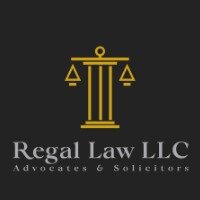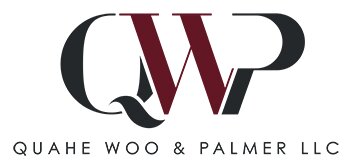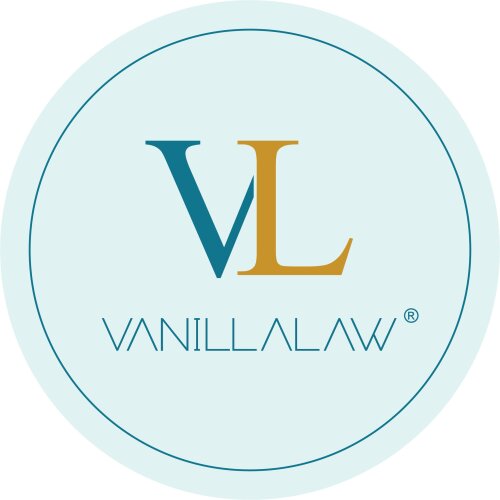Best Government Relations & Lobbying Lawyers in Singapore
Share your needs with us, get contacted by law firms.
Free. Takes 2 min.
Or refine your search by selecting a city:
List of the best lawyers in Singapore
About Government Relations & Lobbying Law in Singapore
Government Relations and Lobbying in Singapore involve the strategic management and influence of governmental policies and decisions. These activities are key for businesses, non-profit organizations, and individuals looking to engage with government officials and understand the legislative landscape. In Singapore, government relations and lobbying are conducted within a framework that emphasizes transparency, ethics, and the public interest. The approach is often characterized by formal and informal channels of communication, designed to advocate for specific interests while ensuring alignment with national goals.
Why You May Need a Lawyer
There are several scenarios where legal help in government relations and lobbying may be necessary:
- Regulatory Compliance: Ensuring that lobbying efforts comply with local laws and regulations.
- Policy Advocacy: Developing and presenting policy positions to government bodies.
- Contract Negotiations: Engaging in agreements with government entities that may require legal oversight.
- Ethics and Conduct Guidance: Understanding the ethical considerations and legal boundaries of lobbying activities.
- Dispute Resolution: Handling disputes with government agencies or other stakeholders relating to lobbying activities.
Local Laws Overview
Government relations and lobbying activities in Singapore are governed by a framework focused on transparency and integrity. Key aspects include:
- The Foreign Interference (Countermeasures) Act: Addresses foreign influence and interference in domestic politics, impacting how foreign entities can lobby in Singapore.
- The Prevention of Corruption Act: Ensures that lobbying practices do not involve bribery or corruption.
- Official Secrets Act: Protects classified information, ensuring that lobbying does not involve the unauthorized disclosure of such information.
- Public Order Act: Regulates public assemblies and processions, which can be relevant for activities like advocacy demonstrations.
Frequently Asked Questions
What is considered lobbying in Singapore?
Lobbying in Singapore typically involves activities aimed at influencing government policies or decisions, such as meeting with government officials, providing policy recommendations, or organizing public campaigns.
Do I need to register as a lobbyist in Singapore?
Unlike some jurisdictions, Singapore does not currently have a specific register for lobbyists. However, transparency and honesty in declaring the purpose of engagements with government officials are crucial.
What are the ethical boundaries for lobbying in Singapore?
Lobbying must comply with Singapore's laws on corruption and transparency. It is important to avoid conflicts of interest and ensure all engagements are conducted ethically.
Can foreign entities lobby the Singaporean government?
Foreign entities can engage in lobbying, but they must adhere to Singaporean laws, particularly those concerning foreign interference and security.
How can a lawyer help with government relations in Singapore?
A lawyer can provide guidance on legal compliance, ethical best practices, and effective advocacy strategies when engaging with government officials.
Are there restrictions on lobbying during elections?
Yes, there are specific rules governing the conduct of lobbying and advocacy during election periods, especially concerning the Political Donations Act.
What should I do if I am accused of lobbying misconduct?
Seek legal advice immediately to address any allegations of misconduct, as these can have serious legal and reputational consequences.
How does the government of Singapore monitor lobbying activities?
Government agencies monitor lobbying through existing compliance frameworks and occasionally solicit public feedback on policy matters to ensure transparency and accountability.
Is lobbying regulated differently for NGOs and businesses?
While the fundamental regulations are the same, NGOs may face different public expectations and processes based on their non-profit status and mission-driven objectives.
Are there specific industries where lobbying is more common in Singapore?
Industries such as finance, health, technology, and environmental services often engage in lobbying due to the regulatory nature of these sectors and the need for policy advocacy.
Additional Resources
For those seeking more information or assistance with government relations and lobbying in Singapore, consider contacting the following:
- Ministry of Law: Provides resources on legal standards and regulations.
- Corrupt Practices Investigation Bureau: Offers guidance on maintaining anti-corruption compliance.
- Singapore Business Federation: Supports businesses in understanding the policy landscape.
- Non-Profit Organization Associations: For NGOs seeking guidance on ethical advocacy practices.
Next Steps
If you believe you require legal assistance in government relations and lobbying, consider the following steps:
- Consult a Lawyer: Reach out to a legal professional specializing in government relations to discuss your specific needs and situation.
- Research and Educate Yourself: Familiarize yourself with the relevant laws and best practices to ensure compliance and effective advocacy.
- Engage with Professional Networks: Join industry groups or associations that can provide support and share insights on interacting with the government.
- Document Your Activities: Keep detailed records of your lobbying activities to maintain transparency and address any potential inquiries or issues.
Lawzana helps you find the best lawyers and law firms in Singapore through a curated and pre-screened list of qualified legal professionals. Our platform offers rankings and detailed profiles of attorneys and law firms, allowing you to compare based on practice areas, including Government Relations & Lobbying, experience, and client feedback.
Each profile includes a description of the firm's areas of practice, client reviews, team members and partners, year of establishment, spoken languages, office locations, contact information, social media presence, and any published articles or resources. Most firms on our platform speak English and are experienced in both local and international legal matters.
Get a quote from top-rated law firms in Singapore — quickly, securely, and without unnecessary hassle.
Disclaimer:
The information provided on this page is for general informational purposes only and does not constitute legal advice. While we strive to ensure the accuracy and relevance of the content, legal information may change over time, and interpretations of the law can vary. You should always consult with a qualified legal professional for advice specific to your situation.
We disclaim all liability for actions taken or not taken based on the content of this page. If you believe any information is incorrect or outdated, please contact us, and we will review and update it where appropriate.
Browse government relations & lobbying law firms by city in Singapore
Refine your search by selecting a city.















